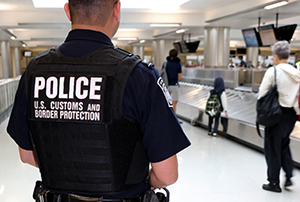The United States will implement a $250 visa surcharge starting in 2026: Why and for whom?

The US government continues to regulate and tighten entry requirements. This time, as part of the " One Big Beautiful Bill" Act, it includes a provision affecting tourists, students, and temporary workers.
The new fee, which was added to the bill through the work of Republican lawmakers on the House Judiciary Committee, is part of a set of 22 fees that are designed to " encourage lawful conduct among foreign nationals visiting the United States."
What is it about? This is the ' Visa Integrity Fee,' which will affect the following individuals who hold the following non-migrant visa categories:
- Tourism (B-1/B-2).
- Study (F/M),
- Cultural exchange (J).
- Temporary work (H‑1B, L, O, P, R).

You'll have to pay more to get a visa. Photo: iStock
As established in the One Big Beautiful Bill Act, the new $250 surcharge will not apply to the following individuals:
- Diplomatic and consular officials.
- Applicants from countries included in the Visa Waiver Program (VWP), which allows citizens of certain countries to enter the U.S. without a visa for up to 90 days.
Since Colombia is not part of the Visa Waiver Program , Colombian citizens will be required to pay this new fee when applying for the aforementioned visa types.
In order to recover this amount, please note that the $250 is refundable only under strict conditions, not optional. The requirements for requesting a refund are as follows:
- You must not exceed the length of stay that your visa allows you to have.
- You must not work illegally.
- You must leave the country no later than five business days after the expiration or change of immigration status within the legal framework.

Colombians must pay the requested amount. Photo: iStock
Individuals who fail to meet the requirements for a Visa Integrity Fee refund will automatically lose their ability to recover the money. In this case, the collected amount will be transferred to the U.S. Department of the Treasury.
U.S. government officials disagree Not all sectors agree with the implementation and enforcement of this new fee. Geoff Freeman, president of the United States Travel Association (USTA), criticized the measure, saying that the increase in these fees " puts a price on one of the nation's strongest sources of income: international spending," according to Forbes magazine.
This same outlet reported that among those criticizing the measure are officials from the country's immigration departments. They say these measures would affect international tourism, as they will result in fewer foreign visitors to the American country.

Immigration services workers oppose the measure. Photo: cbp.gov
LATEST NEWS EDITORIAL.
eltiempo





